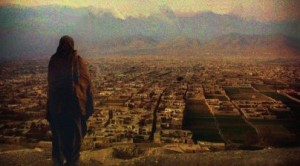Hey there all of you, once again welcome to my blog!
I hope everyone had a lovely reading break and is finding the transition back to classes much easier than I am. Since we haven’t covered much new material since the last blog post, I wasn’t too sure what I’d write about this week. So I’ve decided to give you all some background to my ASTU essay proposal that we’ve been working on. I’m actually pretty excited about this essay because I got to choose my own novel, outside of the syllabus. I chose one of my favourite books by one of my favourite authors: A Thousand Splendid Suns by Khaled Hosseini. There were a few reasons I thought of this novel in particular, one of them being that we were recently looking into Poems from Guantanamo Bay. It was briefly talked about how poetry for Middle Eastern cultures is more of an everyday thing. When we talked about this, it brought to mind a quote from A Thousand Splendid Suns where one of the main character’s father jokes that there was a time when you couldn’t stretch a leg in their city without poking a poet in the ass.
There were other similarities within the novel itself that reminded me of novels we’ve read over the past year. Like Marji’s parents from Satrapi’s Persepolis, who didn’t want to leave their country even though their lives were in danger and their beliefs had to be censored, because they loved their homeland that much. This sentiment was also in Hosseini’s novel, where Laila’s (one of the main characters) mother refused to leave their country of Afghanistan even though rockets were striking houses and killing people around them everyday. It put her whole family’s lives in danger but she would not change her mind. When I first read Hosseini’s novel (yes, I’ve read this book several times) I was struck by the fact that someone could love their home so much, almost more than their family. But years later, after reading Persepolis, I think I could understand better where that love for your home comes from.
Anyways, the purpose of this blog was to give everyone who hasn’t read this book a little info on how great it is. If you haven’t already guessed, it is set in Afghanistan. Hosseini narrates the lives of two women, which I think is amazing, given the time period for women in Afghanistan. The first, Mariam born in a rural village outside of Herat in 1959 and the second, Laila in the city of Kabul in 1978. They both have very different personalties, live very different lives, but somehow their trauma leads them into the same household. It’s over a very intense time period in Afghanistan’s history, when the country goes from Democratic rule to fighting the Soviets, to the Taliban taking control, to America declaring war on the country. It is an especially difficult time period for women in Afghanistan, Laila is born during a peaceful time where women are encouraged to learn and work but in her young adult years is when the Taliban take over with a very different mindset.
Besides all the politics of it, what makes the book one of my favourites is how poetically it is written. I found the first chapter online for anyone who is interested. I don’t want to give too much away, but it’s definitely worth the read and I hope all of you get the chance to look into it or any of the other novels that Khaled Hosseini has written, like The Kite Runner or And the Mountains Echoed.
Citations:
Falkoff, Marc. Poems from Guantánamo the Detainees Speak. Iowa City: U of Iowa, 2007. Print.
Hosseini, Khaled. A Thousand Splendid Suns. New York: Riverhead, 2007. Print.
Satrapi, Marjane. Persepolis. New York, NY: Pantheon, 2003. Print.
